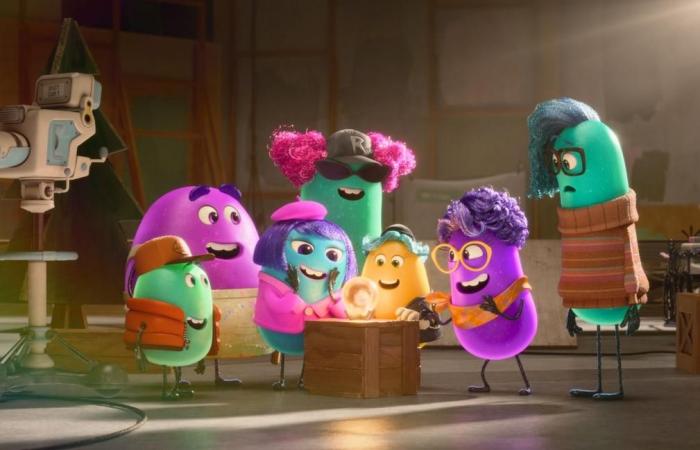Dreams are desires… or rather, they are personal films.
Nothing new or disruptive, if we consider that the world of cinema has been associated with the dreamlike dimension since its birth. After all, sitting in a dark room and immersing yourself in a story projected on a huge bright screen is a bit like falling asleep and entering a new dimension where everything is possible, until the lights are turned back on and you wake up.
But what did the fathers of psychoanalysis think? If Sigmund Freud made no secret of his detestation of the seventh art (“Cinematic reduction seems inevitable, just like bobbed hair, but I don’t have it done and personally I don’t want to have anything to do with stories of this kind” he wrote to friend and student Sándor Ferenczi. “My main objection remains that it is not possible to make a respectable plastic presentation of our abstractions”), Carl Gustav Jung was more tolerant and stated that “the cinema, as well as detective novels, allows us to experience without danger the emotions, passions and fantasies destined, in a humanitarianist era, to have to succumb to inhibition”.
On the other hand, again according to Jung’s doctrine, the dream is both an autonomous and significant product of psychic activity (in which the unconscious manifests itself authentically through symbols and archetypes, i.e. the exact opposite of what Freud claimed) , is a sort of theatre, where each character or element is part of the psyche of those who dream of them.
From classical theater to sound stage it is a short step and it is therefore not surprising that, in the universe of Inside Out“the dream factory” (a definition which, not surprisingly, is the Hollywood nickname) of the protagonist Riley is the gigantic film studio that gives its title to this Pixar miniseries: the Dream Productionsimagined as a chaotic mix between the Paramount and Warner Bros. studios, where the competition is ruthless and the focus is only on producing, producing and producing… in increasingly frenetic times and at crazy paces.

Set between the first Inside Out (2015) and the sequel (2024), Dream Productions is signed by Mike Jones (screenwriter of Soul2020 e Luca2021), who also directs the final episode. The perspective chosen is that of a backstage documentary, which alternates classic shots, statements from various characters, embarrassing moments stolen behind the scenes, inaccessible and unexpected places captured live. The large camera placed on the set, however, coincides with Riley’s subjective view and turns on every time the little girl starts to dream.
Since there is no possibility of a second take (everything happens live), the set, script, costumes, music, camera movements, editing cuts and special effects must be prepared in advance. As long as she was little, dealing with Riley’s dream world was easy, but now that she has reached the age of twelve and is about to enter adolescence, the language and themes of her dreams (whose primary purpose is to inspire her decisions) must necessarily change.
The one who seems unable to understand the problem is Paula Persimmon, an award-winning filmmaker who (fortified by her irreplaceable assistant Janelle and the successes achieved with the sugary and glittery “films” that accompanied Riley’s childhood) deludes herself into thinking she can continue in the same all-out direction. When Janelle is finally offered the opportunity to direct her own debut film, Paula finds herself forced to replace her with the recommended Xeni (grandson of the very powerful producer Jean Dewberry), a snooty experimental director of “daydreams”, who despises the use of scripts and preaches improvisation as the supreme art form.


The clash between two very opposite personalities risks having repercussions on Riley’s existential balance and, given that his emotions (Joy, Sadness, Fear, Disgust and Anger) can only watch films without intervening, the issue must be resolved internally by Dream Productions. For anyone who knows even superficially the audiovisual field (and the frightening crisis it is going through), the meta-cinematographic satire is evident.
We have the self-absorbed boomer director who can’t understand why her work no longer enjoys the success it once did, the talented young filmmaker who struggles to find her own space, the polemical hipster (armed with a hand-held camera) who would consider it commercial even Godard, the intrusive producer (devoted to business and convinced that she always knows what the best solution for the public is), the star in crisis (Rainbow Unicorn), the rigid compartmentalization (there is a director specialized in each area of entertainment: comedy, action, sports and horror), the obligation to include a stereotyped love story, the pressure on screenwriters, useless reboots and the harsh law of the emotiometer (symbolic substitute for box office).
If children are captivated by the bright colors, the whirlwind gags, the animations and the funny characters (see Melatonin), the adults (especially if they are cinephiles) feel a subtle sense of unease, balanced between the nostalgia of the era “of what beautiful it was the films” (883 teachers) and the awareness that the entire audiovisual sector will take years, if not more, to emerge from the nightmare in which the pandemic, strikes, fanaticism ideological, the absence of new ideas and the continuous controversies on social media precipitated it.
Perhaps we will soon wake up from this dark moment and forget it just as quickly. Or maybe not. But the important thing is to continue to create new dreams for those who still believe in cinema, whether they love more classic entertainment or think that “art should subvert public expectations”.






